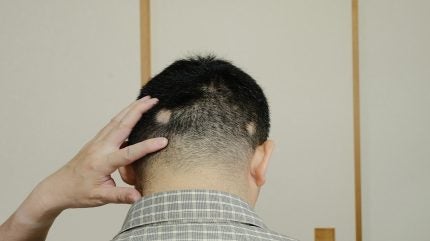
Nektar Therapeutics has concluded target enrolment in the Phase IIb REZOLVE-AA trial of its investigational biologic therapy, rezpegaldesleukin, for treating individuals with severe-to-very-severe alopecia areata.
The trial enrolled subjects who had not previously been treated with a janus kinase inhibitor or other biologic therapies.

Discover B2B Marketing That Performs
Combine business intelligence and editorial excellence to reach engaged professionals across 36 leading media platforms.
They were randomised across two distinct dose regimens of the therapy or placebo.
The primary efficacy endpoint of the trial focuses on assessing the mean percent improvement in the Severity of Alopecia Tool (SALT) score after a 36-week induction period.
Secondary endpoints encompass the proportion of subjects with a greater than or equal to 50% decrease in their SALT score at week 36 including other evaluated time points. It also includes mean percent improvement in this score at other evaluated timepoints, and the proportion of subjects achieving a SALT-20 score, stated the company.
The study, which commenced in March last year, has a global reach, with subjects enrolled across nearly 30 sites, with enrolments of 62%, 24%, and 14% in Poland, Canada, and the US, respectively.

US Tariffs are shifting - will you react or anticipate?
Don’t let policy changes catch you off guard. Stay proactive with real-time data and expert analysis.
By GlobalDataAccording to the investigator evaluation, subjects who experienced an unstable course of alopecia areata over the last six months were also excluded from the trial.
The enrolment criteria involved severe-to-very-severe alopecia areata diagnosis, as per the SALT score measured at the time of screening as well as randomisation.
Those with diffuse alopecia and other forms of the condition were excluded, and subject randomisation was stratified by baseline disease severity measures.
Nektar Therapeutics CEO and president Howard Robin said: “Rezpegaldesleukin has demonstrated activity in multiple inflammatory skin disease settings.
“This creates an opportunity for rezpegaldesleukin to emerge as the first novel treatment option targeting T regulatory cell dysfunction in the hair follicles of patients battling this chronic condition. We look forward to reporting our topline data from this study in the fourth quarter of this year.”
The therapy is being developed as a self-administered injection for various autoimmune and inflammatory conditions.
It is also under evaluation in the REZOLVE-AD study for moderate-to-severe atopic dermatitis.





